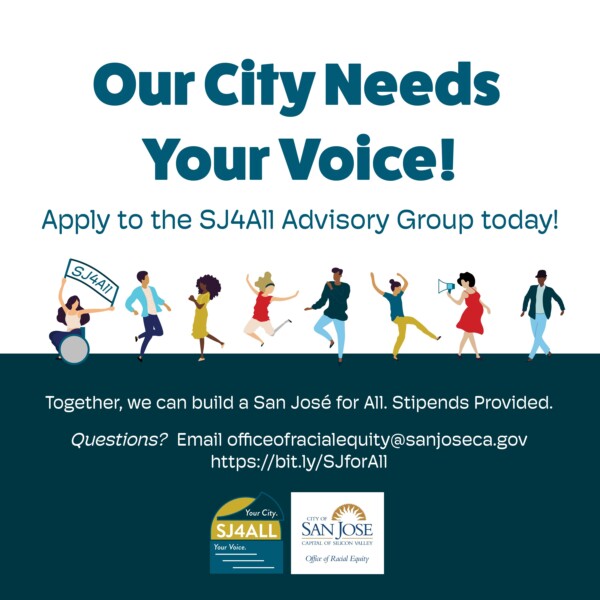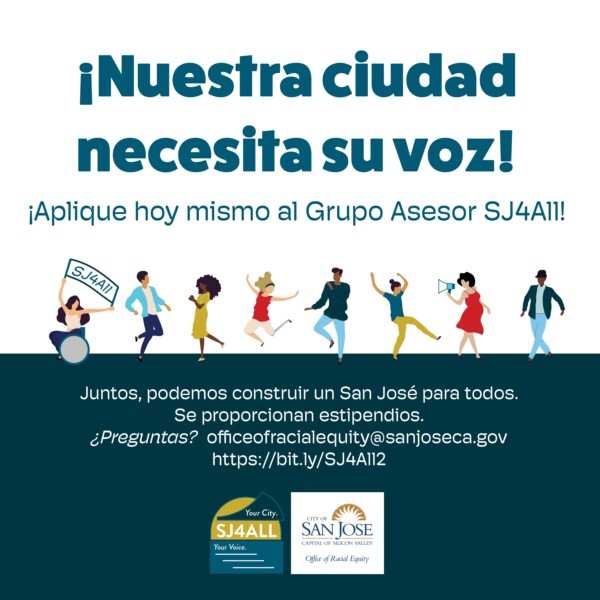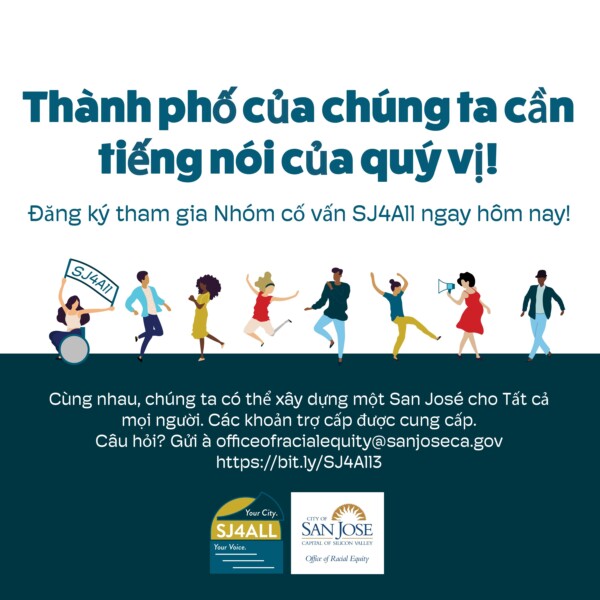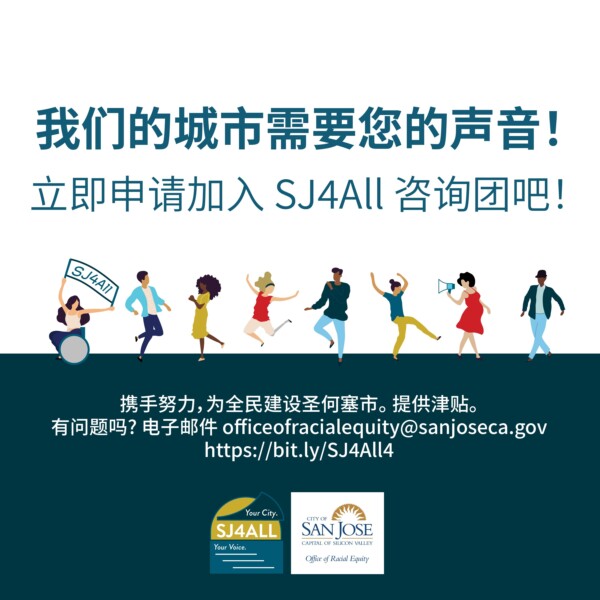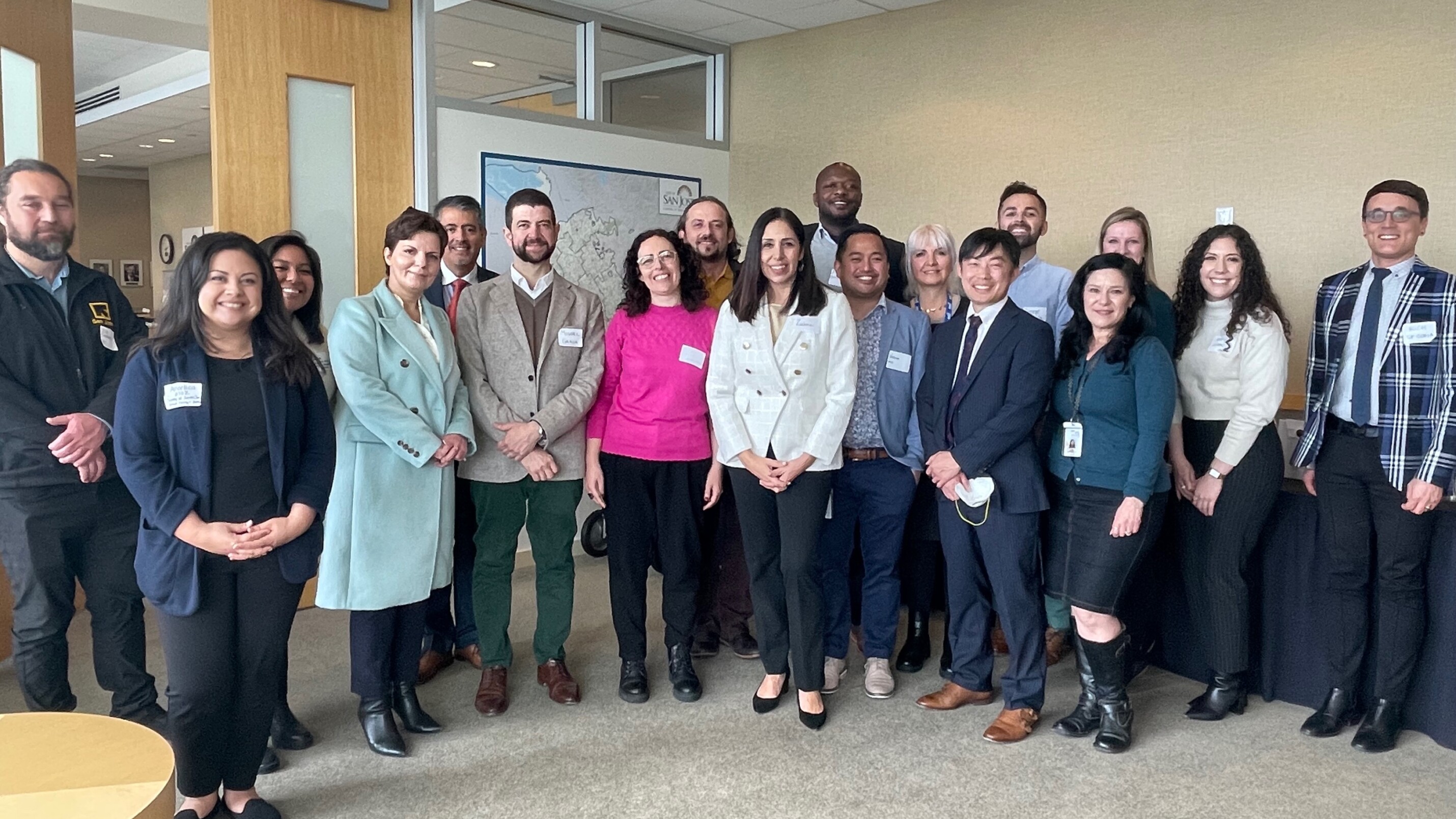
Five approaches to welcoming that are advancing inclusion and equity in San José

Zulma Maciel, director of San José’s Office of Racial Equity
In March 2022, the City of San José, California became Certified Welcoming.
Over a year later, we interviewed Zulma Maciel, director of San José’s Office of Racial Equity, to learn more about unique approaches the city government uses to cultivate equity and inclusion for immigrant communities and Black, Indigenous, and people of color.
Using racial equity as a foundation for welcoming
The San José Office of Immigrant Affairs was established in 2015. Several years into the first Welcoming San José Plan, the city government began to recognize the significance of using a racial equity lens to shape welcoming work.
“Advancing racial equity is work that we began deliberately in 2018 when we became members of the Government Alliance on Race and Equity,” Maciel shares. “Our work expanded to consider people that have historically been excluded.”
Champions on the San José City Council pushed for the creation of the Office of Racial Equity. In June 2020, the office was established and now houses the Office of Immigrant Affairs.
This shift encouraged Maciel and her staff to think deeply and act strategically to advance inclusion and equity for newcomers and the Black, Indigenous, and communities of color that have lived in San José for centuries.
“People are acknowledging that there are many communities across the U.S. that have not felt welcomed despite being here for decades,” says Maciel. “We know that when you apply intentional, targeted strategies for certain communities that have historically been left out, there are actually benefits for all. Expanding the framework that Welcoming America has offered to embrace historically underserved and marginalized communities is a good way forward for all of us.”
Clarifying the role of city government to support community-led efforts
Going through the process to become Certified Welcoming helped San José’s government clarify its role in the community’s immigrant inclusion ecosystem.
Maciel reflects, “We were reminded that we don’t need to duplicate community partners’ good work. The city’s role is to ensure that partners have what they need to be successful and to eliminate any city-induced barriers that get in the way of doing their work. As the local government, our time and our efforts are best served within the institution, ensuring that all departments understand the responsibility to keep immigrants in mind and include immigrants when drafting policy and creating programs.”
Partners across the community and within other local government offices participated in San José’s Certified Welcoming interviews. Certification requires a large time commitment for all involved, and Maciel didn’t realize how intensive the process would be until it was underway.
Reflecting on how she would approach certification in the future, Maciel says, “I would conduct an orientation for my colleagues, our city department partners, and our community partners. It’s important to be clear-eyed about where we’re going and what the expectations are for everyone.”
She further remarks, “Engaging in this commitment, while really important, also needs to be identified in our own operational work plans so we can dedicate the proper time to this.”
Rethinking commissions and civic engagement
Following certification, the San José Office of Racial Equity created a city-wide engagement framework to provide more opportunities for immigrants and various representatives from Black, Indigenous, and communities of color to participate in key city efforts.
“One area of improvement identified in the Certified Welcoming evaluation was around civic engagement efforts,” shares Maciel. “It made us reflect on the role of the Office of Immigrant Affairs, and ultimately, it was a challenge to us to do way better. We’re not just going to meet the [Welcoming] Standard. We’re going to go beyond and do something that drastically changes the way that we engage with communities so that it’s not extractive, but collaborative.”
A recent, compelling project that the government is addressing in collaboration with community members is the redesign of a city commission. Then city council member Sylvia Arenas asked Maciel’s team to revisit the Human Services Commission, at first proposing to change the name to better align with the Office of Racial Equity.
“We thought about that, and changing the name is okay, but insufficient,” says Maciel. “Commissions are often narrowly focused and can have structural limitations that hinder community engagement. We envisioned an advisory body that would include lived experiences of community members and functioned in a way that would provide meaningful input to the city so all residents can benefit from the services and policies that the city offers.”
“Council member Arenas gave us permission to think differently, and we came back with a counter-proposal to co-design an advisory group that actually works for the community,” she shares.
In 2022, the Office of Racial Equity sunsetted the Human Services Commission, and in 2023, it is launching the San José for All Advisory Group.
The office co-designed the advisory group with community members to define the vision for the group, how it should operate, the criteria for representation among the group, and guidelines for the application process.
The application itself was easy to complete and available in multiple languages. Applicants could submit their responses via writing, video, or audio, and were encouraged to contact the Office of Racial Equity for technical assistance if needed.
“We are floored by the response! We received 130 applications from San José residents who want to participate in this, which is so different from other commissions we have in the city. There are many vacancies, and it’s been a challenge to get them filled,” Maciel shares. “When you have the community design an advisory group that will be advising the city on key projects upstream — not one where policies or programs are already cooked and taken to a commission for consideration — it changes the dynamic.”
Institutionalizing welcoming in local government
The Office of Racial Equity saw Certified Welcoming as an opportunity to institutionalize welcoming work within San José’s city government.
Maciel explains, “In our last year of the first Welcoming San José Plan, it felt like the timing was right to have a third party objectively look at our work and signal where we’re at in terms of our strengths and areas of improvement.” She added, “Thanks to the Silicon Valley Community Foundation, the certification costs were covered and we could focus on the assessment.”
In the event that staffing or funding for Maciel’s office could be reduced, she felt that having a Certified Welcoming report added credibility to the team’s efforts and investments.
Importantly, Maciel notes that the Office of Racial Equity is seated within the Office of the City Manager, “which is already institutionalized and is different from other municipal offices out of the mayor’s office, which can be more unpredictable.”
Leveraging the Welcoming Interactive to establish new partnerships
Welcoming America selected San José to host the 2023 Welcoming Interactive. Maciel sees the conference as a key opportunity to develop new partnerships that will help the city advance its welcoming work.
Finding ways to partner with the private sector is one opportunity Maciel is particularly excited about.
“There’s this notion that because we’re in Silicon Valley that there’s lots of money and lots of resources spilling out of the private sector to address immigrant justice efforts, and unfortunately, that’s not currently the case,” she says. “By hosting the Welcoming Interactive, we hope to amplify a multi-sector approach to develop targeted strategies that benefit and improve outcomes for immigrants and the community.”
As these budding cross-sector partnerships emerge, Maciel reflects on ways that partners can support the sustainability of welcoming work.
“I’m hoping to engage the private sector in ways that institutionalize the partnerships. Whether I’m here or not, I want those relationships to remain,” she shares. “Here we have a shared focus on ensuring that immigrants feel like they belong, thrive, prosper, and remain in Silicon Valley.”
